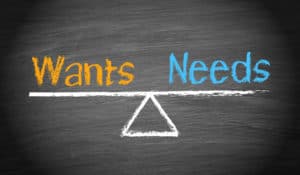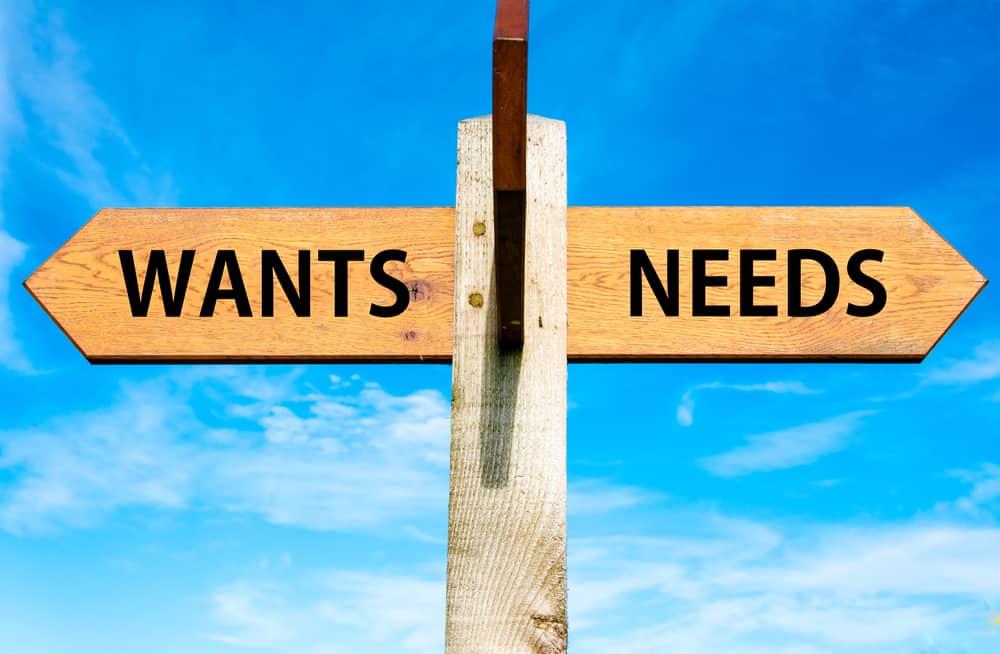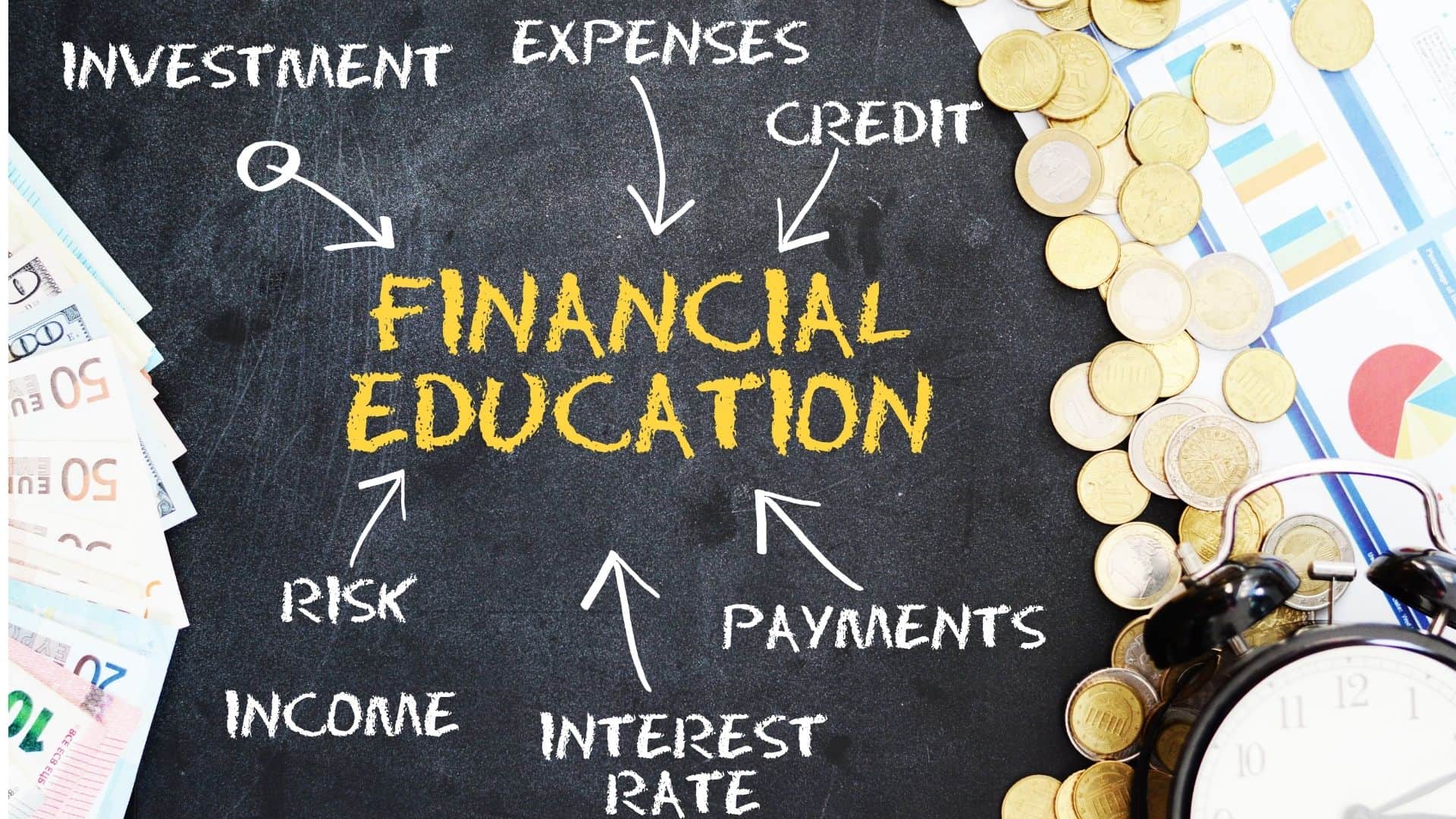Wants and Needs: What’s the Difference?

When my daughters were growing up, they’d often say to me, “Dad, I want this. I want that. I like this. Can I have that?” When I was in teaching mode, I’d often reply, “I don’t want to hear what you want. I want to know what you need.” Trying to teach kids the difference between the two can be tough. But believe me, it’s not a whole lot easier with adults.
It’s easy to get wants and needs confused with each other. We may think we NEED a latte, but in reality, we can do without. Next time you are craving something, see if you give yourself an honest answer when you ask: “Is this a want or a need?” To be consistently honest takes a cultivated mindset. But if you can achieve one, that mindset that becomes the way to your financial freedom.
Knowing the difference between wants and needs when you’re about to spend money gives you one thing: the freedom to choose. Freedom of choice means you can be flexible. And flexibility gives us one thing that helps us more than anything: the ability to adapt.
Being adaptable to changes will help you weather storms that make their way into your life. To help you navigate your finances during these uncertain times, let’s review three concepts that will help you become financially free and fully adaptable.
Number one: Stop worrying about what you can’t control and focus on what you can.
How do we do this?
First, let’s reframe the word ‘storm’ used above and refer to life’s storms as life’s ‘defining moments.’ We are all blessed with many defining moments. Mine have helped shape who I am today and assisted me in becoming debt-free. Yours can too.
The first defining moment was when I quit drinking alcohol at age twenty-four. I had to change.
I bought my business partner out right around the September 11, 2001 attacks. The world was in turmoil, and so was our economy. It was a risk for me and definitely a defining moment.
Then, we experienced the economic crash of 2008, followed by the hardest thing I’ve ever faced: the unexpected loss of my wife in 2012. Finally, a few years later, I had to have open-heart surgery.
How did I get through all those defining moments? I focused on the one thing I had total control over. The only thing I could change. It was me. And that’s what I did. I sought help from others, read books, listened to thought leaders. I cultivated a mindset that helped me become a better person. That’s what got me through and helped me grow in the process.
Focus on what you can change.
Number two: You must first change your habits if you want to change your reality.
When it comes to finances, what habits can you change? One thing I did in my twenty-nine working years as a company owner or partner was to bring my lunch every single day. I didn’t always eat it every day. Occasionally, I would go out to lunch. If I did go out, guess what I ate the next day? You guessed it – leftovers from the day before.
Many people are surprised at how much money they didn’t spend eating out when we all had to stay home during the pandemic. When restaurants were closed or limited, or you couldn’t just walk down the street from your office to grab a sandwich or burger, have you ever calculated how much money have you saved?
Let’s say you’d often pay $15 for lunch. When you consider you can make your lunch at home for less than $5, that alone would save you $10 a day. When you multiply this by 21 days a month, that’s $2,400 a year. What if you put that money toward a credit card or your home mortgage?
What habits can you change today that can affect you for the rest of your life when it comes to finances?
Number three: Little hinges swing big doors.

Think about those little expenditures and how they add up. Do you use tobacco? I often talk about this. In a class I taught in Southern California, there was an attendee who chewed tobacco. I calculated the monthly cost to support the habit.
After I sat down and penciled it out, I showed him. It cost him around $350 at the time, a month to chew tobacco. He quit chewing tobacco.
That was two years ago. The last time I talked with this gentleman about a year ago, he hadn’t used chewing for a year. So, yes, little things like that make a big, big difference. In this case, not only financially but from a health standpoint.
How many people go to Starbucks every day? Think about it. If the average ticket price is $5 a day, 30 days a month, you’re spending $150! Small habits make a big difference when it comes to your money. If you need a caffeine fix, make coffee at home instead. These are a few small habits you can change to make your paycheck stretch further and work harder for you.
Make a concerted effort to put away a percentage of every paycheck. Every paycheck. Little patterns make a significant difference in your life.
By being adaptable to changes, whether you’re in control of them or not, you can weather those defining moments.


